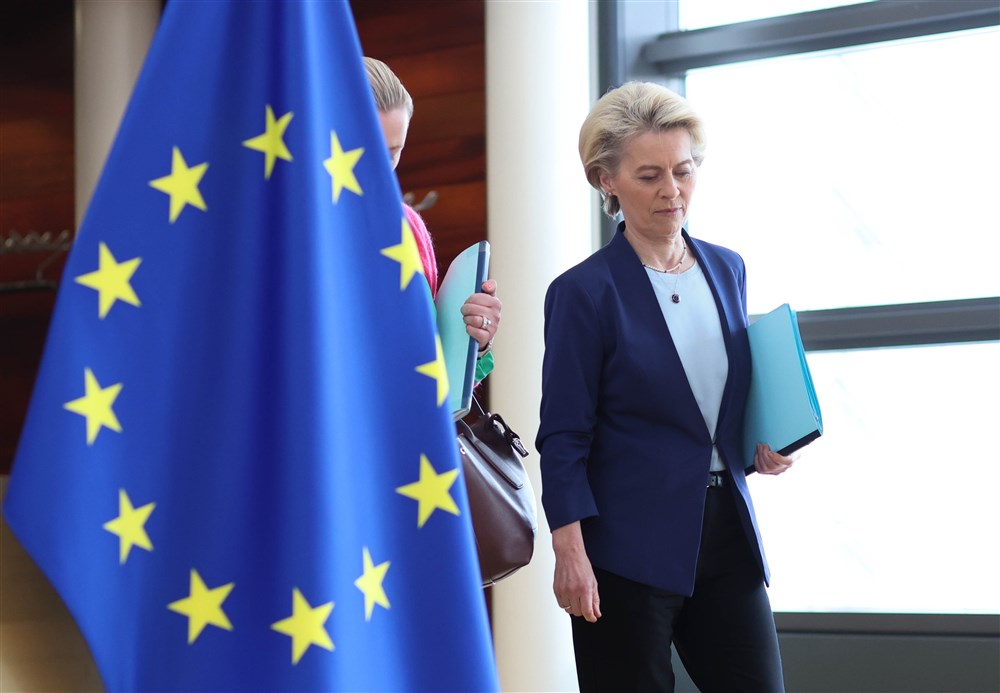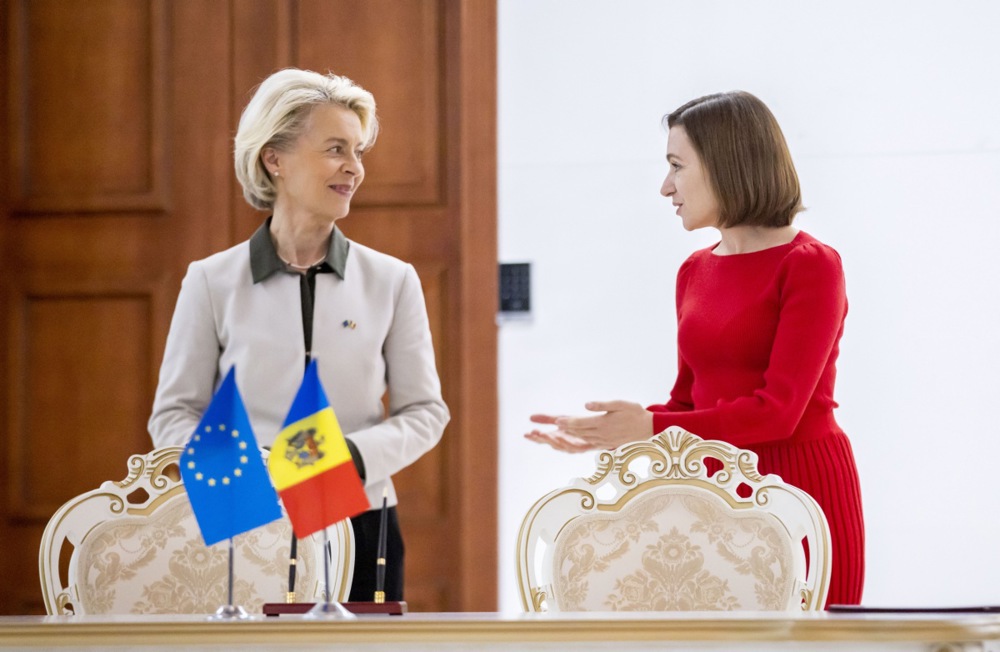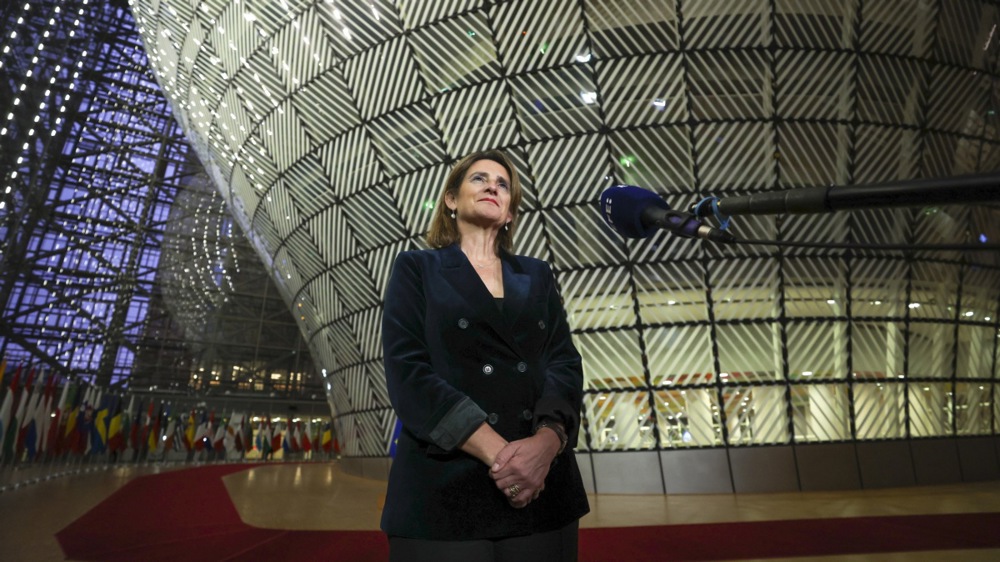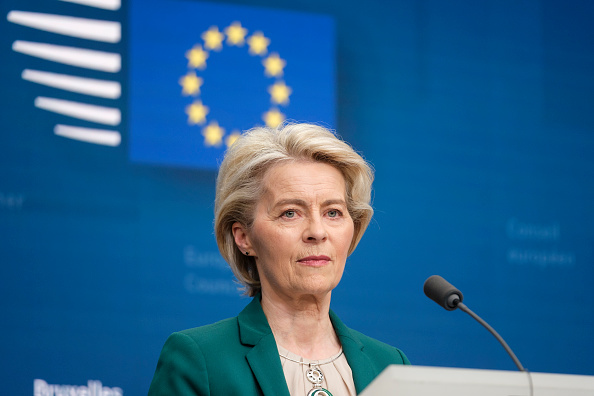The new European Commission, pending approval after the November hearings, has been put together by Commission President Ursula von der Leyen with a clear objective: to prevent anyone from overshadowing her.
Key mandates have been assigned to inexperienced commissioners, ensuring the president’s political lines prevail without internal challenges. Von der Leyen has two main political lines: one, climate change as a legislative driver, and two, Russia as a fuel for enlargement, cohesion and European military restructuring.
After the friction she had in her first term with figures such as Josep Borrell, the current EU’s high representative for foreign policy, von der Leyen is looking for more submissive commissioners who assume their roles without overstepping their areas of action.
Since last June’s European elections, rumours in Brussels have focused on the possibility that von der Leyen would consolidate her unprecedented power if she renewed her mandate.
Never before has a commission president accumulated so much power on the EU stage. Not only is she the first woman to have a second term as head of the EU executive, but with the treaties’ reform underway, Brussels under von der Leyen will absorb a large part of the policies still held by member states, such as health, education and defence.
To maintain this, von der Leyen, a former German defence minister, has limited the historical autonomy of commissioners, who previously enjoyed greater independence in their areas of specialisation.
This trend has increased as the EU executive has become more ideological under her command, earning von der Leyen the nickname of the “Iron Lady” for her ruthless leadership style. Von der Leyen comes from the German Christian Democratic party CDU (EPP group), supposedly liberal-conservative but in practice just as much a social democratic as the majority in the European Parliament. Except for some economic views, the party maintains the same approach to moral issues as the Left.
One of the strategies used to assemble her team has been choosing commissioners by gender quota. Slovenian Marta Kos, nominated as Commissioner for Enlargement, is a significant case in point. A feminist and liberal, Kos was ambassador to Germany and Switzerland and has been working as an independent advisor since 2021. Her role in EU enlargement, especially with the possible accession of Ukraine and Moldova, will be key.

Another surprising appointment is that of Kaja Kallas, former prime minister of Estonia, who will succeed Josep Borrell in foreign policy. With no diplomatic experience, Kallas seems destined to follow von der Leyen’s guidelines in an extremely complex international situation, marked by the US presidential elections and the need to balance relations with China.
France will also play a crucial role in the new team. Stéphane Séjourné, a former French foreign minister, will replace Thierry Breton as internal market commissioner. The unexpected resignation of Breton, a heavyweight in the previous legislature, came as a surprise to many, but Séjourné will ensure the loyalty of Paris, a key factor for the future European defence industry, in which France has a leading role.
This move aims to strengthen the partnership between von der Leyen and the French government, especially in the development of the continent’s arms industry in the coming years.
On immigration and home affairs, Magnus Brunner of the Christian-democrat Austrian People’s Party (ÖPV) has been nominated to lead this department. His party has seen a marked decline in recent elections due to its handling of the migration crisis, and Brunner, an economist by training, is expected to take a purely technical and numerical approach.

This has raised concerns that simplifying such a complex problem to economic figures alone could lead to insufficient or counterproductive solutions. To focus on immigration just from an economic perspective means levels of migration will be kept high to maintain the European economy with cheap workers.
Von der Leyen secured the backing of the Nordic and Baltic states and Poland, in a context of growing tension with Russia. Lithuanian Andrius Kubilius has been appointed defence commissioner despite his lack of significant experience in this area. He will be responsible for coordinating Europe’s defence industry alongside Séjourné, although many expect other actors to set the tone for his mandate, such as the arms lobby which will benefit greatly from the new defence policy.
Green policies will also be in the hands of two women. Sweden’s Jessika Roswell has been nominated as commissioner for the environment. She is a liberal conservative with no experience at all in environmental policies. She has been previously Minister of EU Affairs and Nordic Cooperation.
Spain’s Teresa Ribera will take on the energy transition portfolio. Ribera, although critical of von der Leyen during the election campaign for her ‘shift to the Right’, has been the socialist Spanish Prime Minister Pedro Sánchez’s bet to maintain his influence in Brussels. Ribera is an important ally who will avoid friction within the commission.
European Commission President Ursula von der Leyen wants to establish so-called “return hubs” outside the European Union to accelerate deportations. https://t.co/I4LXTs9JN9
— Brussels Signal (@brusselssignal) October 15, 2024





